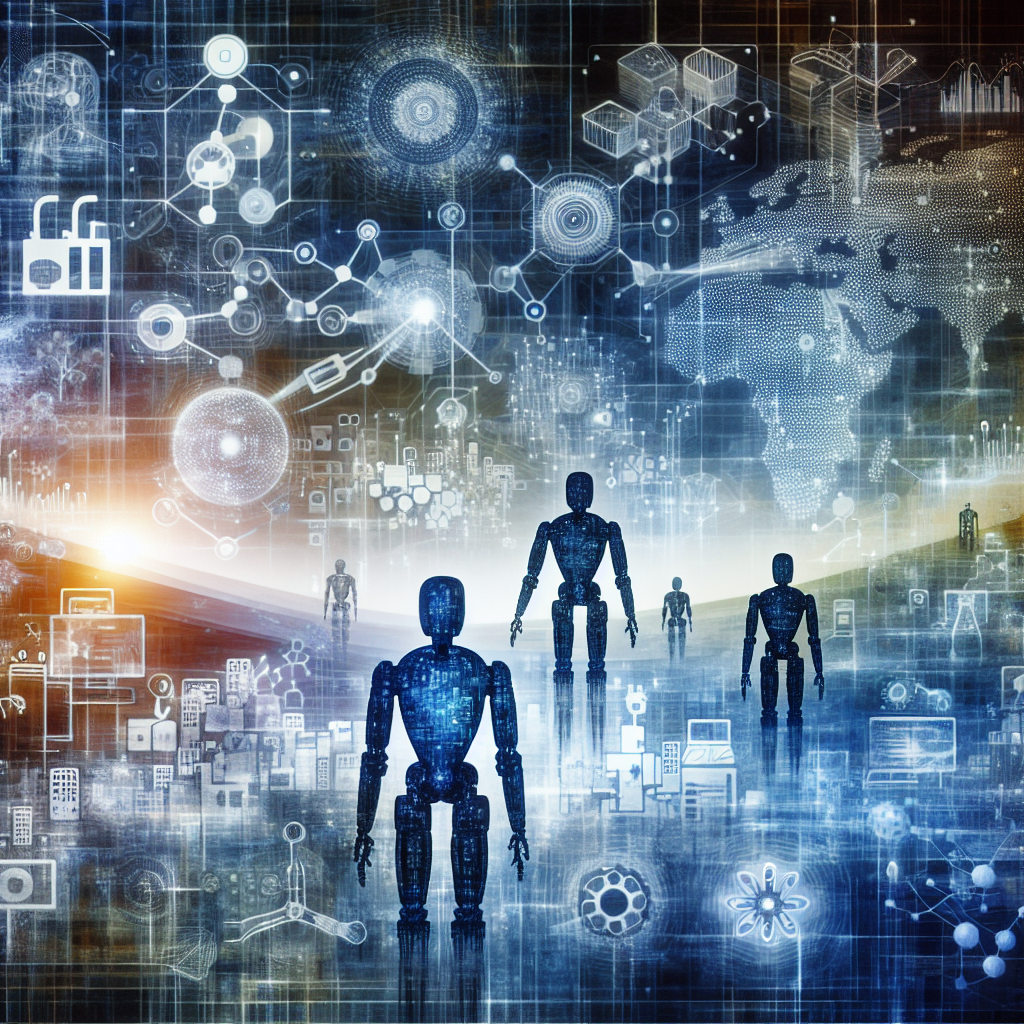The Economic Impact of AGI: How Artificial General Intelligence is Shaping the Future of Work
Introduction
Artificial General Intelligence (AGI) is a term used to describe machines that have the ability to perform any intellectual task that a human can do. While current AI systems are designed for specific tasks and are limited in their capabilities, AGI represents the next evolution in artificial intelligence, with the potential to revolutionize industries and fundamentally change the way we work.
The economic impact of AGI is a topic of much speculation and debate. Some experts believe that AGI has the potential to drive massive economic growth and create new opportunities for innovation, while others fear that it could lead to widespread job displacement and economic inequality. In this article, we will explore how AGI is shaping the future of work and discuss its potential economic impact.
The Rise of AGI
AGI has long been a goal of artificial intelligence researchers, as it represents the pinnacle of AI capabilities. While current AI systems are capable of performing specific tasks, such as image recognition or natural language processing, they lack the ability to generalize their knowledge and apply it to new situations. AGI, on the other hand, would have the cognitive abilities of a human, allowing it to learn new tasks and adapt to new environments.
The development of AGI has been a long and challenging process, with researchers working to create systems that can understand and reason about the world in a way that is similar to human intelligence. While progress has been slow, recent advancements in machine learning and neural networks have brought us closer to achieving AGI than ever before.
The Economic Impact of AGI
The potential economic impact of AGI is vast and far-reaching. On one hand, AGI has the potential to drive massive economic growth by enabling new technologies and industries that were previously unthinkable. For example, AGI could revolutionize healthcare by enabling personalized medicine and more accurate diagnoses, or it could transform transportation by making autonomous vehicles safer and more efficient.
AGI also has the potential to create new opportunities for innovation and entrepreneurship. With the ability to perform any intellectual task, AGI could enable individuals and businesses to automate mundane tasks and focus on more creative and strategic activities. This could lead to a surge in productivity and economic growth, as businesses are able to operate more efficiently and effectively.
However, the economic impact of AGI is not all positive. Many experts fear that AGI could lead to widespread job displacement and economic inequality. As machines become increasingly capable of performing a wide range of tasks, there is a risk that many jobs could be automated, leading to mass unemployment and economic hardship for those who are displaced.
Furthermore, the rise of AGI could exacerbate existing economic inequalities, as those who have the skills and resources to work with AGI are likely to benefit disproportionately from its capabilities. This could lead to a further concentration of wealth and power in the hands of a few, while leaving others behind.
FAQs
Q: Will AGI replace all human jobs?
A: While AGI has the potential to automate many tasks currently performed by humans, it is unlikely to replace all human jobs. There will always be a need for human creativity, empathy, and social skills that machines cannot replicate.
Q: How can businesses prepare for the rise of AGI?
A: Businesses can prepare for the rise of AGI by investing in training and upskilling their workforce, focusing on areas where human skills are most valuable, and exploring new business opportunities enabled by AGI.
Q: What are the ethical implications of AGI?
A: The rise of AGI raises many ethical questions, such as how to ensure that AGI is used responsibly and ethically, how to prevent bias and discrimination in AI systems, and how to ensure that the benefits of AGI are distributed equitably.
Conclusion
The economic impact of AGI is a complex and multifaceted issue that has the potential to shape the future of work in profound ways. While AGI has the potential to drive massive economic growth and create new opportunities for innovation, it also poses risks of job displacement and economic inequality. As we continue to develop and deploy AGI systems, it is crucial that we consider the economic implications and work to mitigate any negative effects. By investing in training and upskilling, focusing on areas where human skills are most valuable, and exploring new business opportunities, we can harness the power of AGI to create a more prosperous and equitable future for all.

